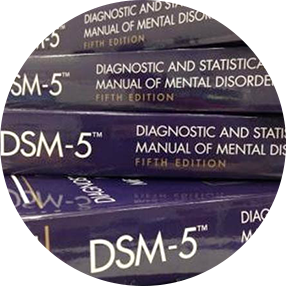Obsessive-Compulsive Disorder (OCD)
What is obsessive-compulsive disorder?
Obsessive-compulsive disorder (OCD) is a common anxiety disorder. It causes unreasonable thoughts, fears, or worries. A person with OCD tries to manage these thoughts through rituals.
Frequent disturbing thoughts or images are called obsessions. They are irrational and can cause great anxiety. Reasoning doesn’t help control the thoughts. Rituals or compulsions are actions that help stop or ease the obsessive thoughts.
What causes OCD?
Experts aren’t sure of the exact cause of OCD. Genetics, brain abnormalities, and the environment are thought to play a role. It often starts in the teens or early adulthood. But it can also start in childhood. OCD affects men and women equally. It appears to run in families.
Other anxiety problems, depression, eating disorders, or substance abuse may happen with OCD.
What are the symptoms of OCD?
Obsessions are unfounded thoughts, fears, or worries. They happen often and cause great anxiety. Reasoning does not help control the obsessions. Common obsessions are:
- A strong fixation with dirt or germs
- Repeated doubts (for example, about having turned off the stove)
- A need to have things in a very specific order
- Thoughts about violence or hurting someone
- Spending long periods of time touching things or counting
- Fixation with order or symmetry
- Persistent thoughts of awful or disturbing sex acts
- Troubled by thoughts that are against personal religious beliefs
You may know that the thoughts are unreasonable and not due to real-life problems. But it’s not enough to make the unwanted thoughts go away.
Compulsions are repetitive, ritualized acts. They are meant to reduce anxiety caused by the obsession. Examples are:
- Repeated hand-washing (often 100+ times a day)
- Checking and rechecking to make sure that a door is locked or that the oven is turned off for example
- Following extremely rigid rules of order, such as, putting on clothes in the same order each day, or alphabetizing the spices, and getting upset if the order becomes disrupted
Compulsive acts can become excessive, disruptive, and time-consuming. They may interfere with daily life and relationships.
People may stay away from situations where they might have to face their obsessions. Some try alcohol or drugs to calm themselves.
How is OCD diagnosed?
OCD is diagnosed during a physical and psychiatric exam when obsessions and compulsions:
- Take up at least 1 hour each day
- Are distressing
- Interfere with daily life
Always see your healthcare provider for a diagnosis.
How is OCD treated?
Treatment will depend on your symptoms, age, and general health. It will also depend on how severe the condition is.
Treatment may include:
- Anti-anxiety or antidepressant medicines are often used.
- Cognitive behavioral therapy can also help.
Contact Dr. Fogelson’s office to schedule an appointment for a Obsessive-Compulsive Disorder (OCD) evaluation.
*UCLA Adult Health Library Obsessive-Compulsive Disorder (OCD)

